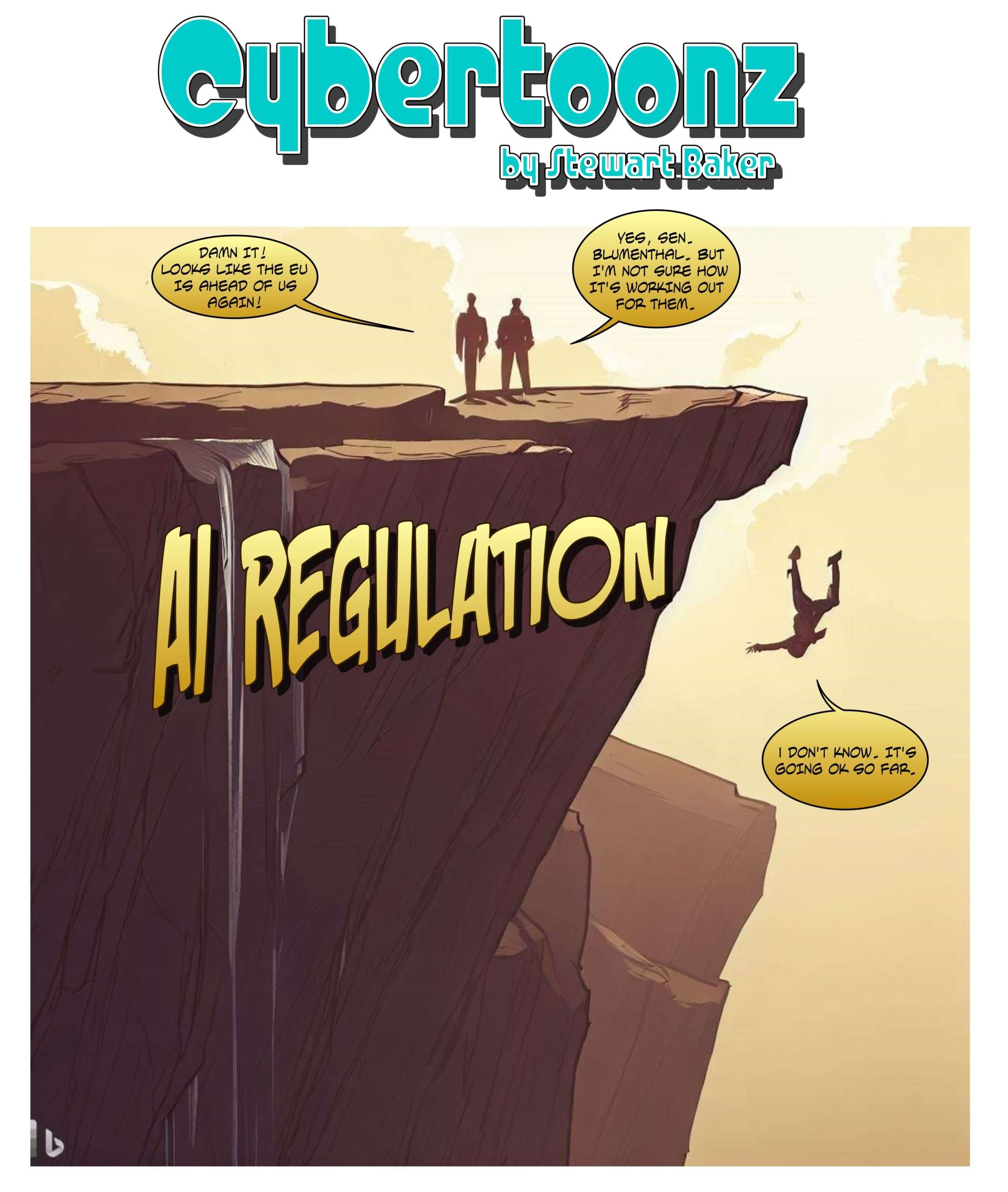This episode of the Cyberlaw Podcast features part 1 of our two-part interview with Paul Stephan, author of The World Crisis and International Law – a deeper and more entertaining read than the title suggests. Paul lays out the long historical arc that links the 1980s to the present day. It's not a pretty picture, and it gets worse as he ties those changes to the demands of the Knowledge Economy. How will these profound political and economic clashes resolve themselves? We'll cover that in part 2.
Meanwhile, in the news roundup, I tweak Sam Altman for his relentless embrace of regulation for his industry during testimony last week in the Senate. I compare him to another Sam with a similar regulation-embracing approach to Washington, but Chinny Sharma thinks it's more accurate to say he was simply doing the opposite of everything Mark Zuckerberg did in past testimony. Chinny and Sultan Meghji unpack some of Altman's proposals, from a new government agency to license large AI models, to safety standards and audit.
I mock Sen. Blumenthal for his complaint that "Europe is ahead of us" in industry-killing regulation. That earns him immortality in the form of a new Cybertoon, below (as before, a hat tip to Bing Image Creator for the graphic help).

Speaking of Cybertoonz, I note that an earlier Cybertoon scooped a prominent Wall Street Journal article covering bias in AI models – by two weeks.
Paul explains the Supreme Court's ruling on social media liability for assisting ISIS, and why it didn't tell us anything of significance about section 230.
Chinny and I analyze reports that the FBI misused its access to a section 702 database. All of the access mistakes came before the latest round of procedural reforms, and, on reflection, I think the fault lies less with the FBI and more with DOJ and the DNI, who came up with access rules that all but guaranteed mistakes and didn't ensure that the database could be searched when security requires it.
Chinny reviews a bunch of privacy scandal wannabe stories
- The UK flap over efforts to create a modern version of pen/trap records. I explain that this initiative is largely a reaction to bad data protection law.
- Two surveillance camera stories,
- one story that documents the use of surveillance cameras and facial recognition to monitor public housing residents. In a rare moment of "check your privilege" one-upsmanship, I chide Chinny for not honoring the needs of public housing residents who value security from crime higher than privacy in the laundry room, and
- another story on the more or less inevitable networking of cheap surveillance cameras in the suburbs
- And finally, a government privacy scandal ripped from the headlines of the 1920s: It turns out that the US Post Office can keep track of what's written on the outside of the envelopes it delivers. Several Congressmen are shocked.
Download the 458th Episode (mp3)
You can subscribe to The Cyberlaw Podcast using iTunes, Google Play, Spotify, Pocket Casts, or our RSS feed. As always, The Cyberlaw Podcast is open to feedback. Be sure to engage with @stewartbaker on Twitter. Send your questions, comments, and suggestions for topics or interviewees to CyberlawPodcast@gmail.com. Remember: If your suggested guest appears on the show, we will send you a highly coveted Cyberlaw Podcast mug! The views expressed in this podcast are those of the speakers and do not reflect the opinions of their institutions, clients, friends, families, or pets.
The post Interviewing Paul Stephan on "The World Crisis and International Law" appeared first on Reason.com.







